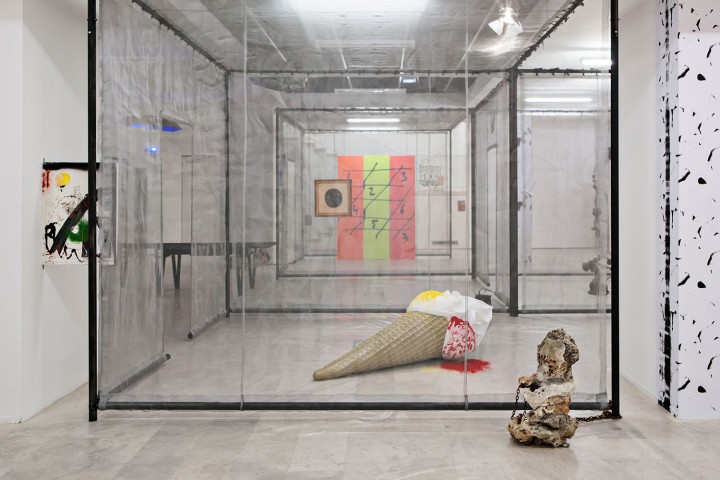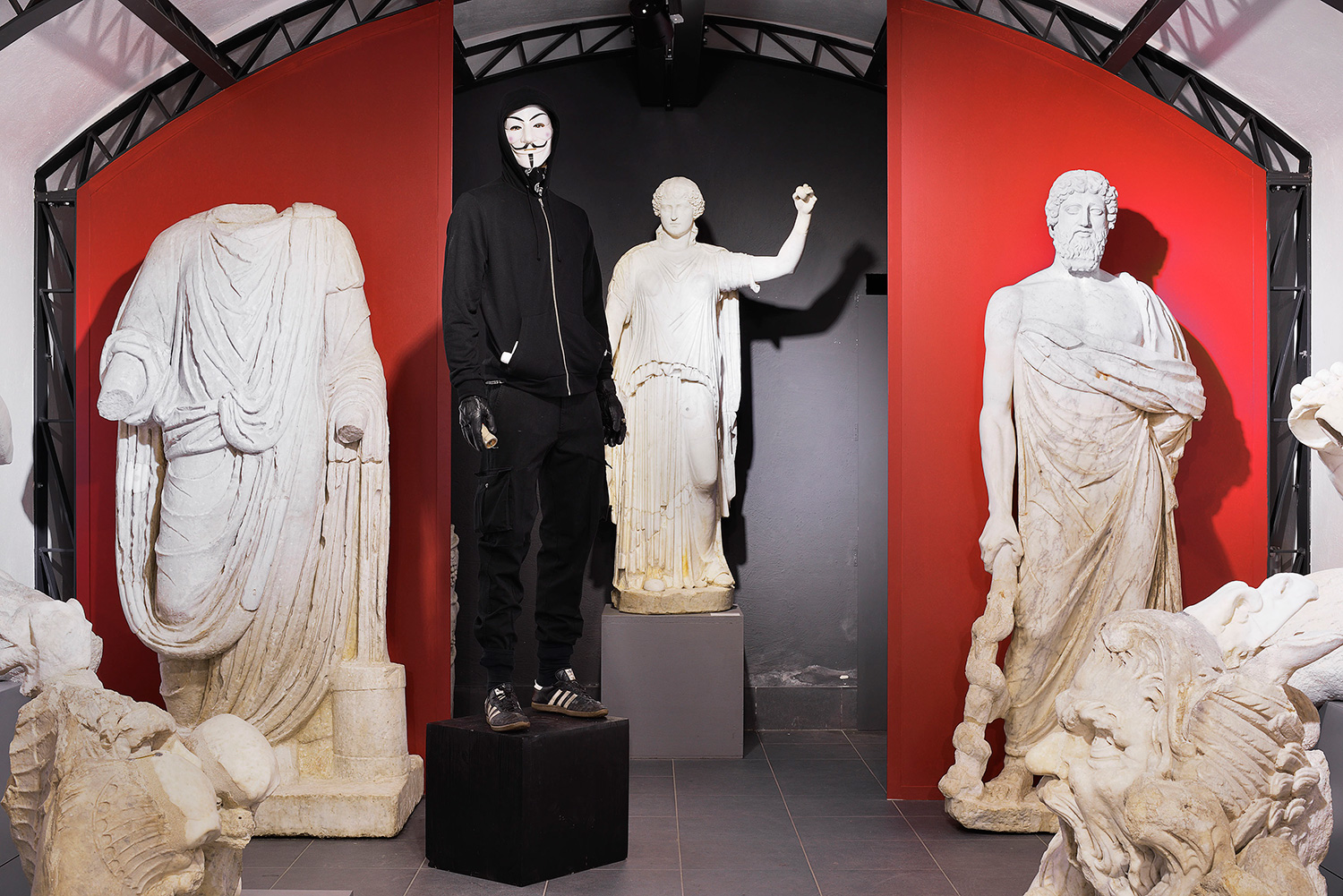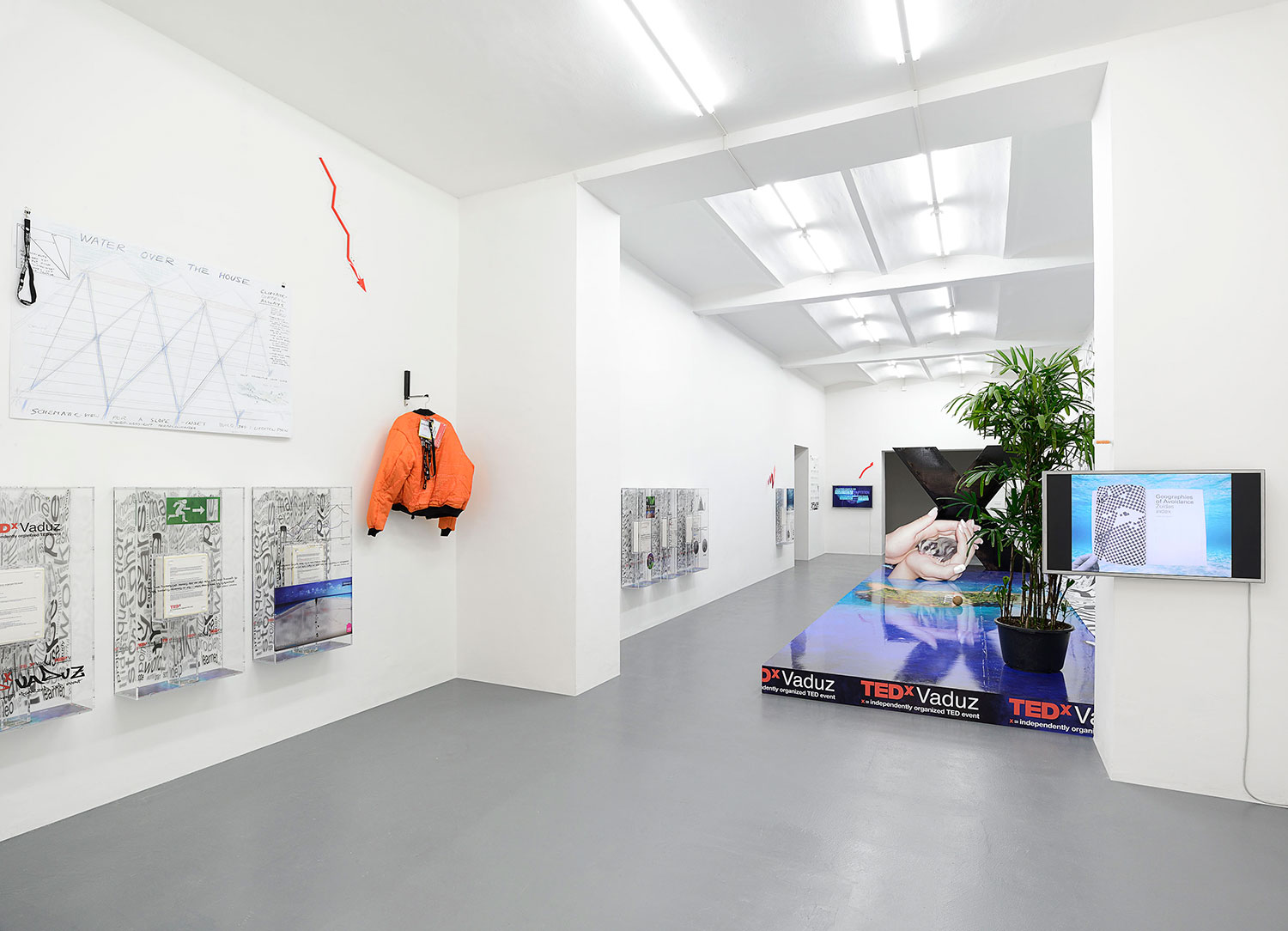Drawing its premise from the second “Draftsmen’s Congress” that took place in June last year, which saw interactions between artists and general audiences in the wake of a democratic understanding of art making, the group show “Cattedrale” is intended to pursue that same approach, using the language of images rather than that of words. That is how we may briefly describe this schizophrenic exhibition of artworks — whose variety of media spans from video, drawing, painting and sculpture — scattered in the space with no apparent logic except for the three-nave abstract structure of a cathedral that stands above them.
Fifteen artists — Sunah Choi, Enzo Cucchi, Michele Di Menna, Paolo Do, Daniel Knorr, Salvatore Lacagnina, Victor Man, Maximage, Lorenzo Micheli Gigotti, Dan Perjovschi, Fabio Marco Pirovino, Thomas Sauter, Maximilian Zentz Zlomovitz, Valentina Vetturi and Jakub Julian Ziolkowski — have been brought together to discuss the potential of collaborative production. A deeper consideration reveals an interest in the exploration of the mechanics of collaborative labor in the construction of a multilayered, indistinct narrative. As Roland Barthes said: “As soon as a fact is recounted no longer in order to act directly upon reality but intransitively, […] this disjunction occurs, the voice loses its origin, the author enters his own death, writing begins.” Here, that writing begins with a reflection on the role of contemporary art today and its socio-cultural message as conveyed via the role of the curator. Hence, “Cattedrale” features no labels with authors’ names, no prescribed paths to drive visitors across the space. On a plastic sheet covering the whole floor of the Sala Elvetica, the pieces lay as on a construction site, suggesting a distinct open-endedness. These are juxtaposed by means of association, expressing the sense of a choral artwork. “Collective knowledge” is intended not in terms of information but as a sort of common activity — a shared experience: once participation is freed from hierarchy and the supremacy derived from authorship, the unity and power of the collective lies in its common language — the mass intellect, the communicative and relational faculties of mankind.





